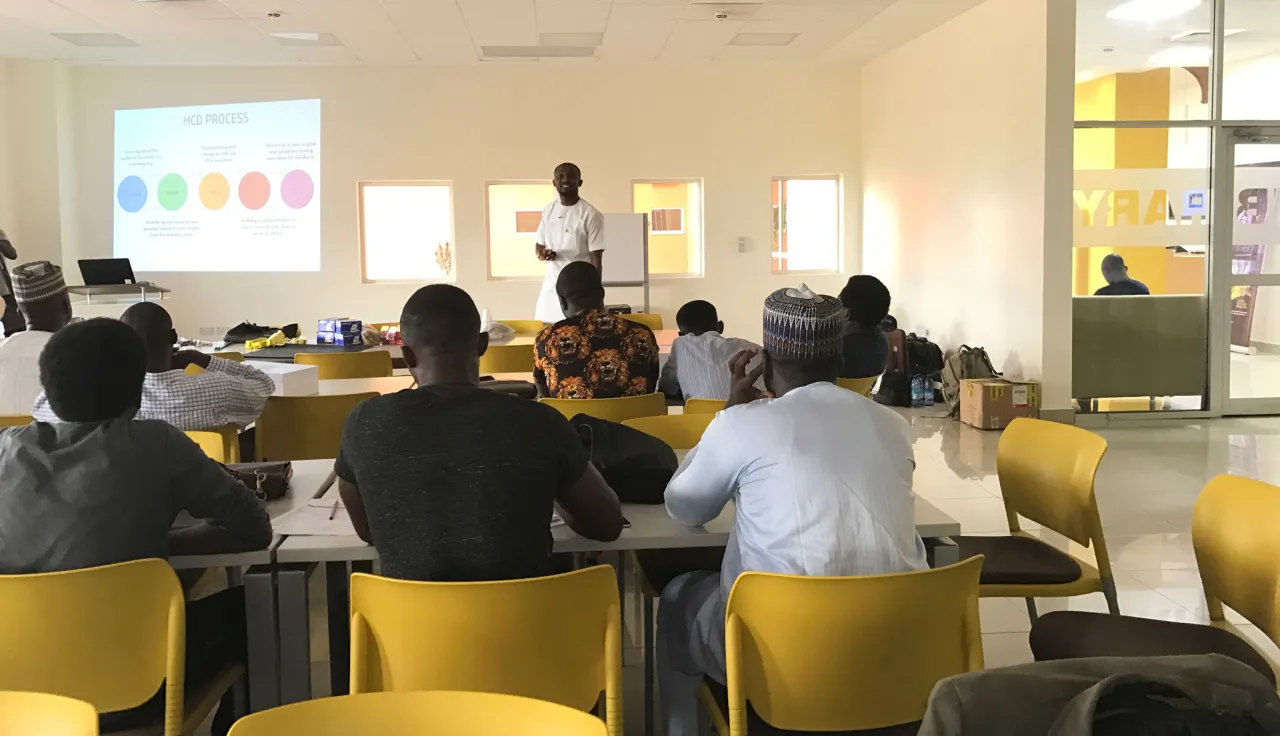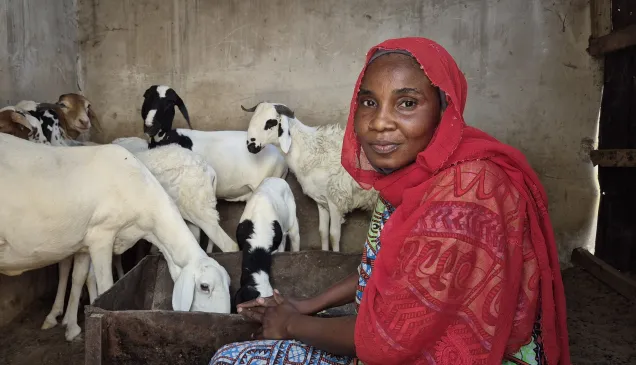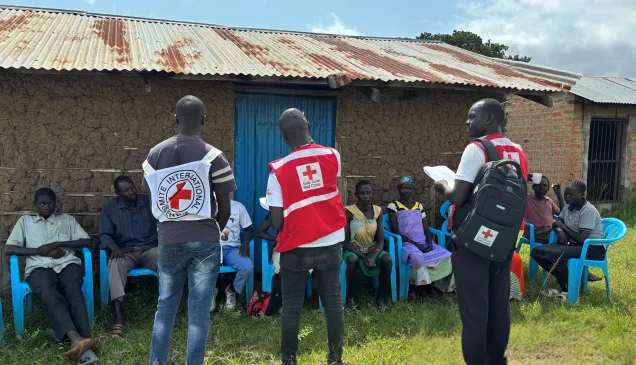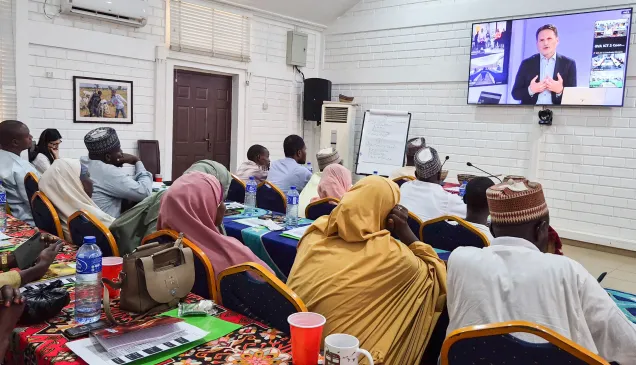The excitement in the air is palpable as Abubakar steps forward and pitches his idea: an irrigation system that automatically reads the water needs of plants and then administers the perfect amount of water.
In Nigeria, where nine years of armed conflict has left many without enough to eat and rainfalls are often inadequate, Abubakar's irrigation system might be a catalyst for improving food security in the country.
Abubakar is one of Nigeria's young people participating in a humanitarian innovation hub in Yola, Adamawa state, a space that hopes to hatch innovate ideas for alleviating the massive challenges facing millions of people in the conflict-stricken North East.
The humanitarian innovation hub was created by the Nigerian National Social Investments Program under the office of the Vice President, with the support of the International Committee of the Red Cross (ICRC). The partnership led to the organisation of a North East makeathon, in which people were invited to submit ideas tailored to meet the specific needs of the North East.
The long walk
The process began with identifying pressing humanitarian needs in six areas: early recovery and economic security, access to health, access to education, protection and resilience of communities affected by armed conflict, nutrition and food security, and camp coordination and management. Over 1,500 entries were recorded during the North East Makeathon application process and screened for pitching.
The pitching events were held in both Abuja and Yola where applicants with innovations that were relevant to the situations in the North East, had social impact, a commercial viability and a likelihood to succeed were sent to an Immersion Bootcamp. There, a mix-n-match with relevant co-creation resources and members of the affected community took place. This boot camp provided the innovators opportunities for mentorship, exchange of ideas among peers and interaction with affected communities.
"By interacting with the displaced persons during the excursion exercise, we were able to refine our idea in such a way that it would be affordable to all and still rake in profit for us," said Eliot Wogu, founder of Techno-vation Hub, a security application that allows parents to keep track of their children in a region where children have been unwitting victims of kidnapping.
On 5 June 2018, the humanitarian innovative hub was launched. A total of 12 finalists pitched their ideas live to a cross-section of investors and stakeholders from the public and private sector with Vice President of Nigeria, the ICRC, and other humanitarian partners in attendance. The hub is expected to serve as a space to incubate these innovate ideas to influence their development towards salvaging the North East humanitarian challenges.
What the Future Holds
From the creation of off-line library sources that can be accessed by children who are out of school due to the conflict, to the provision of dignity kits that make hygiene an accessible and practicable lifestyle for women living in displaced camps, the prospects of the hub are enormous.
Babazana Abdulkareem, a young man from Borno, a state severely affected by the armed conflict in the North East, created the Kin Reunifier, which seeks to reunify families with their loved ones who have been displaced.
"I was inspired to come up with this innovation during my work in a camp for the displaced in 2015, where I discovered that a lot of children are separated from their family as a result of the conflict," he said.
The Kin Reunifier helps to find missing persons not just in Nigeria, but also across countries in the Lake Chad region where the conflict is ongoing. This will be achieved through its multi-lingual interface using English, French and Arabic.
For the next three months, these young entrepreneurs will be huddled in the co-working spaces, fabrication labs and training pods that make up the humanitarian hub. The period intends to refine the product building process through a variety of resources and sponsorships from strategic partners like the ICRC.
The ICRC in Nigeria has been working for over 30 years in various humanitarian contexts. In the last nine years, the ICRC has protected and assisted vulnerable populations in the affected states of the north-east. The humanitarian hub is one of the many ways the ICRC seeks to explore alternative ways to meet the humanitarian challenges on ground.




